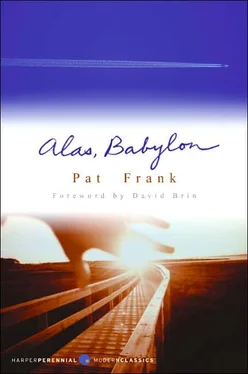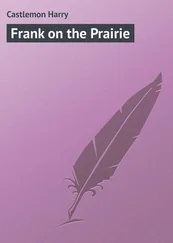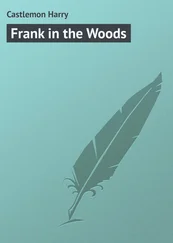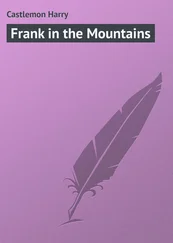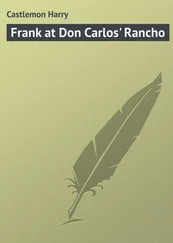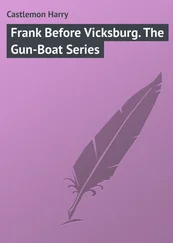“The place is near the headwaters of the Timucuan, some twenty-two nautical miles, I should judge, up that tributary. It is called by an Indian word meaning Blue Crab Pool. The pool itself is crystal clear, like the Silver Springs. I thought it surrounded by a white beach, but then discovered that what I thought sand was pure salt. It was quite unbelievable. In this pool there were blue crabs, such as are found only in the ocean, yet the pool is many miles inland, and two hundred miles from the mouth of the St. John, or May.”
Randy closed the log, grinned, and said, “I’ve heard of Blue Crab Run but I’ve never been there. My father used to go there when he was a boy, for crab feasts. He never mentioned salt. I guess salt didn’t impress my father. It was always in the kitchen. He had plenty.”
The next morning the Fort Repose fleet set sail, five boats commanded by an admiral whose last sea command had also been five ships—a super-carrier, two cruisers, and two destroyers.
By August most of the boats in Fort Repose had been fitted with sails cut from awnings, draperies, or even nylon sheets for the lighter outboards, and with keels or sideboards, and hand carved rudders. For the expedition up the Timucuan, Sam Hazzard chose boats of exceptional capacity and stability. Randy’s light Fiberglass boat wasn’t suitable, so Randy went along as the Admiral’s crew. With the south wind blowing hot and steady, they planned to reach Blue Crab Pool before night and be back in Fort Repose by noon the next day, for their speed would double on their return voyage downstream.
Their five boats crewed thirteen men, all well armed. It would be the first night Randy had spent away from Lib since their marriage, and she seemed somewhat distressed by this. But Randy had no fear for her safety, or for the safety of Fort Repose. His company now numbered thirty men. It controlled the rivers and the roads. Knowing this, highwaymen shunned Fort Repose. The phrase “deterrent force” had been popular before The Day and effective so long as that force had been unmistakably superior. Randy’s company was certainly the most efficient force in Central Florida, and he intended to keep it so.
Sitting at the tiller, gold-encrusted cap pushed back on his head, the wind singing through the stays, the Admiral seemed to have sloughed off a decade. “You know,” he said, “when I was at the Academy they still insisted that we learn sail before steam. They used to stick us in catboats and make us whip back and forth on the Severn and learn knots and rigs and spars. I thought it was silly. I still do, but it is fun.”
They reached a curve of the river and Randy watched the captain’s walk on his roof disappear behind the cypress and palms. It was fun, he thought, and it was quiet. In a sailboat a man could think. He thought about the fish, and what had happened to them, for his stomach was empty.
Peyton Bragg was bored, disgusted, and angry. She had helped Ben Franklin plan the hunt. She had even walked to town with Ben and helped him locate the books in the library that told about armadillos. The armadillo, they had learned, was a nocturnal beast that curled up deep underground in daylight hours. In the night he burrowed like a mole just under the surface, locating and eating tender roots and tubers, in this case the Henrys’ yams. The exciting thing they learned was that in his native Central America the armadillo was considered a delicacy. The armadillo was food. Then, when it came time for the hunt, Ben had refused to take her along. A girl couldn’t stay out all night in the woods, Ben said. It was too dangerous for a girl. She would have presented her case to Randy for judgment, but Randy was gone with the Admiral, and her mother agreed with Ben.
So Ben had gone off that evening with Caleb and Graf. It was Ben’s contention that Graf was the key to armadillo hunting, and so it had proved. In Germany the dachshund was originally bred as a badger hound, which meant that he could dig like mad and would fearlessly and tenaciously pursue any animal underground.
Ben had been armed with a machete and his .22 rifle, but it was Caleb’s spear that had been the effective weapon against armadillos. They had gone to the yam patch in the moonlight. The whole patch was plowed with armadillo runs. Ben introduced Graf to an opening and Graf, sniffing and understanding at once, had wormed his way into the earth. Presently there came an awful snarling and growling from a corner of the patch. Locating the armadillo from Graf’s sounds, Caleb prodded it with his spear, and the armadillo burst out. This eruption so surprised Ben that he shot it. The others, he decapitated with the machete.
In the morning, five armadillos had been laid out in the Henrys’ barn. Two-Tone and Preacher cleaned them, and Peyton had eaten armadillo for breakfast. She would have choked on it, except that it was tender and delicious and she was starving. Ben Franklin was credited with discovering a new source of food, and was a hero. Peyton was only a girl, fit for sewing, pot washing, and making beds.
Peyton threw herself on the bed and stared at the ceiling. She wanted to be noticed and praised. She wanted to be a hero. She recently had been talking to Lib about psychology, a fascinating subject. She had even read one of Lib’s books. “I’m rejected,” she told herself aloud.
If she wanted to be a hero the best way was to catch some fish. She set her mind to the problem, why won’t the fish bite? She had heard the Admiral say that the best fisherman on the river was Preacher Henry and yet she knew that Randy hadn’t talked to Preacher about the no-fish. If anybody could help, Preacher could. She got up, smoothed the bed, and sneaked down the back stairs. This was her day to sweep upstairs. She would finish when she got back.
Peyton found Preacher in the cool of his front porch, rocking. Preacher was getting very old. He didn’t do much of anything any more except rock. Preacher was the oldest person Peyton had ever seen. Now that he had grown a white beard, he looked like a dark prophet out of the Bible. Peyton said, “Preacher, can you tell me something?”
Preacher was startled. He hadn’t seen her slip up on him, and her voice had broken his dream. He started to rise and then sank back into the chair. “Sure, Peyton,” he said. “What do you want to know?”
“Why don’t the fish bite?”
Preacher chuckled. “They do bite. They bite whenever they eat.”
“Come on, Preacher. Tell me how I can catch some fish.”
“To catch fish, you got to think like a fish. Can you think like a fish, little girl?”
Peyton felt injured, being called a little girl, but she was a child of dignity, and it was with dignity that she answered. “No, I can’t. But I know that you can. You must, because you’re a great fisherman.”
Preacher nodded in agreement. “I was a great fisherman. Now I feel too poorly to fish. Nobody thinks of me any more as a great fisherman. They only think of me as an old man of no use to anyone. You are the first one to ask, ‘Why don’t the fish bite?’ So I’ll tell you.”
Peyton waited.
“If it was very hot, like now, the hottest I ever remember, and you was a fish, what would you do?”
“I don’t know,” Peyton said. “I know what I do. I take showers, three or four a day. Outside with nothing on.”
Preacher nodded. “The fish, he wants to stay cool too. He don’t hand around the shore there”—his arm swept to indicate the river banks—“he goes out into the middle. The water close to the shore, it’s hot. You put your hand in it, it feels like soup. But out in the middle of the river, way down deep, it’s nice and cool. Down there the fish feels lively and hungry and he eats and when he eats he bites.”
Читать дальше
